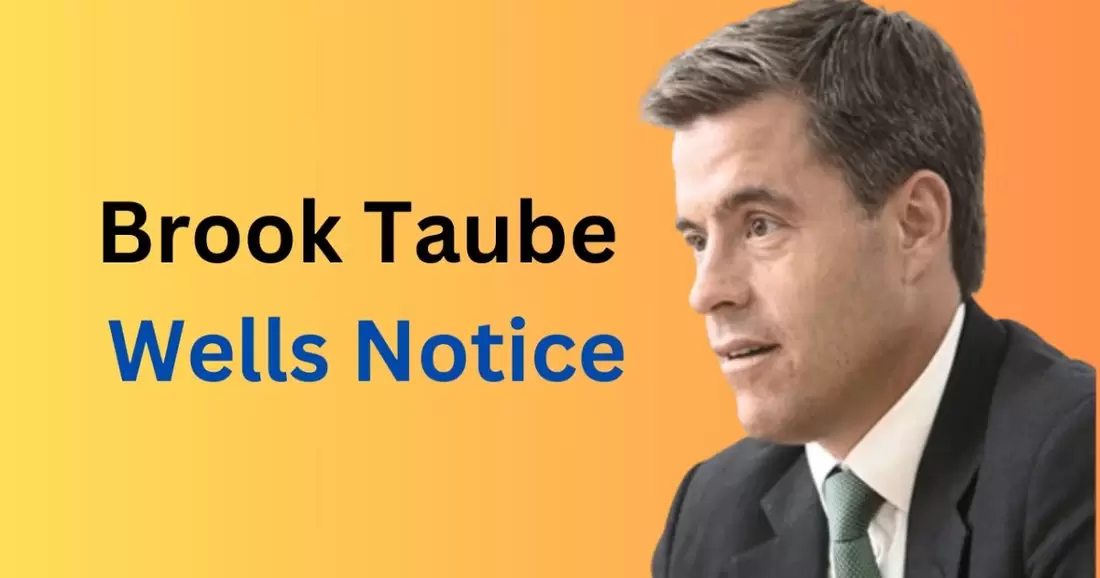Receiving a Wells Notice can be a daunting experience, especially if you’re unfamiliar with what it entails. If you’ve come across the phrase “Brook Taube Wells Notice,” it’s essential to understand its implications and how it affects you as a resident. These notices are not just bureaucratic jargon; they signify important information that could have serious repercussions on your finances and legal standing. Whether you’re trying to wrap your head around the intricacies of such notices or seeking clarity about next steps, this guide will shed light on every aspect of the Brook Taube Wells Notice. Stay informed and empowered as we delve into this crucial topic!
Understanding the Brook Taube Wells Notice
The Brook Taube Wells Notice is a formal communication issued by regulatory authorities. It often indicates that there are concerns related to compliance or potential violations in specific activities.
Understanding this notice begins with recognizing its purpose. Essentially, it serves as a warning, alerting recipients to issues that may require immediate attention.
Residents receiving the notice should not panic but take it seriously. Each notice outlines allegations and provides details about the nature of the investigation or issue at hand.
Clarity is key when interpreting these documents. They can be dense and filled with legal terminology, making them challenging for an average person to decipher alone.
Being informed of what a Wells Notice entails empowers you to act appropriately and ensures you’re equipped to handle any necessary next steps effectively.
What is a Wells Notice and Why Did I Receive It?
A Wells Notice is a formal communication issued by the Securities and Exchange Commission (SEC). This document indicates that the agency has completed its investigation into potential violations of securities laws.
Receiving a Wells Notice can be alarming. It typically means that the SEC believes there is sufficient evidence against you or your company for wrongdoing. The term “Wells” comes from an earlier SEC staff member, which adds a bit of history to this serious notice.
You might wonder about the reasons behind receiving such a notification. Often, it involves concerns surrounding fraud, insider trading, or misleading statements made in financial reports. Understanding why you received it is crucial for determining your next steps and any potential legal implications involved.

Common Reasons for Receiving a Wells Notice
Receiving a Wells Notice can evoke anxiety, but understanding its common reasons helps demystify the situation.
One frequent cause is potential violations of securities laws. This may involve insider trading or misleading information in financial reports that could mislead investors.
Another reason might be issues related to market manipulation. If authorities suspect actions aimed at artificially inflating stock prices, they’re likely to issue a notice as part of their investigation.
Sometimes, irregularities in fundraising efforts come into play. Companies raising capital must adhere strictly to regulations; any deviation can trigger scrutiny and result in a Wells Notice.
Additionally, inadequate disclosures during mergers or acquisitions can raise red flags. Transparency is crucial during these processes, and lapses often lead regulators to take action.
Understanding these factors prepares residents for what lies ahead when facing such notices.
What to Do When You Receive a Wells Notice
Receiving a Wells Notice can be unsettling. Your first step should be to read the notice carefully. Understanding its contents is crucial.
Next, gather any relevant documents or communications related to the matter at hand. This information will be important for your response and possible legal counsel.
Stay calm and avoid making impulsive decisions. Take your time to assess the situation clearly. Panic can lead to mistakes you might regret later.
Consider reaching out to colleagues or trusted advisors who may have dealt with similar circumstances. Their insights could provide valuable context.
It’s wise not to ignore this document or delay in responding. Timely action is key in addressing potential legal issues effectively.
How to Respond to a Wells Notice
Receiving a Wells Notice can be unsettling. It’s crucial to approach your response thoughtfully.
First, read the notice carefully. Understand what allegations are being made against you. This clarity will guide your next steps.
Gather all necessary documents and communications related to the matter. A comprehensive collection of relevant information is key in formulating an effective response.
Consider drafting a written reply that addresses each point raised in the notice. Be clear and concise while maintaining professionalism throughout.
If applicable, provide evidence or explanations that support your position. This could significantly bolster your defense.
Keep timelines in mind as you prepare your response. Missing deadlines can have serious consequences on any further proceedings or negotiations.
Stay calm during this process; emotional reactions can cloud judgment and affect decision-making negatively.
Seeking Legal Counsel
Receiving a Brook Taube Wells Notice can feel overwhelming. It’s crucial to understand your rights and options.
Consulting with an attorney who specializes in securities law is essential. They can help you navigate the complexities of the notice and its implications.
An experienced lawyer will assess your specific situation, providing tailored advice suited to your circumstances. They will explain potential consequences and strategies for response.
Legal counsel not only offers guidance but also peace of mind during this stressful period. You’ll be better equipped to handle any inquiries or actions from regulatory bodies.
Don’t hesitate when it comes to protecting yourself legally. The right support can make all the difference as you work through this process smoothly and confidently.
Conclusion
Receiving a Brook Taube Wells Notice can feel overwhelming and confusing. Many residents may not know the implications of such a notice or how to navigate the situation effectively. It’s essential to understand that this document is not simply a notification; it often indicates potential legal action or regulatory scrutiny.
Staying informed about your rights and responsibilities during this process is crucial. Take the time to review any information provided in the notice thoroughly, as it will guide you on what steps to take next. Whether it’s gathering relevant documents, seeking clarification from involved parties, or reaching out for legal advice, being proactive will serve you well.
Remember that you’re not alone in dealing with these complexities. Legal professionals are available who specialize in interpreting Wells Notices and can offer valuable support tailored to your specific circumstances.
Staying calm and collected while taking informed actions can lead you through this challenging period more smoothly than anticipated. By understanding what a Brook Taube Wells Notice means for you and responding appropriately, you’ll be better equipped to handle whatever comes next.









